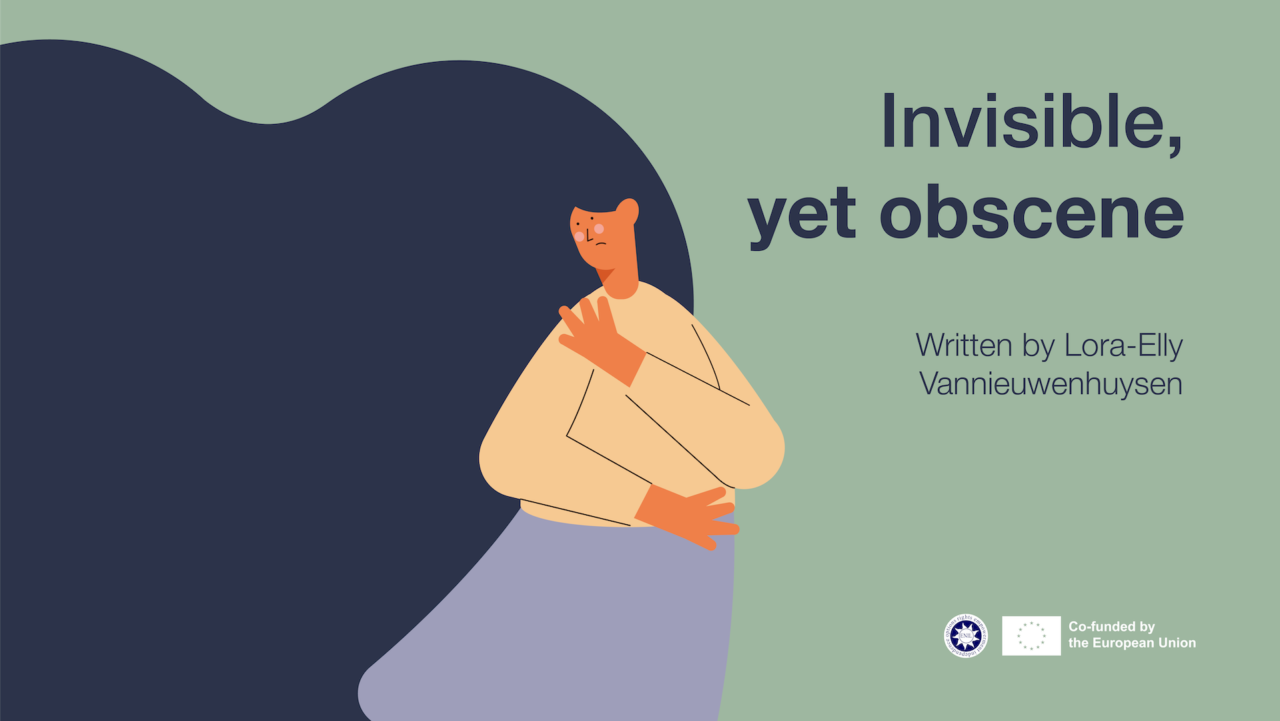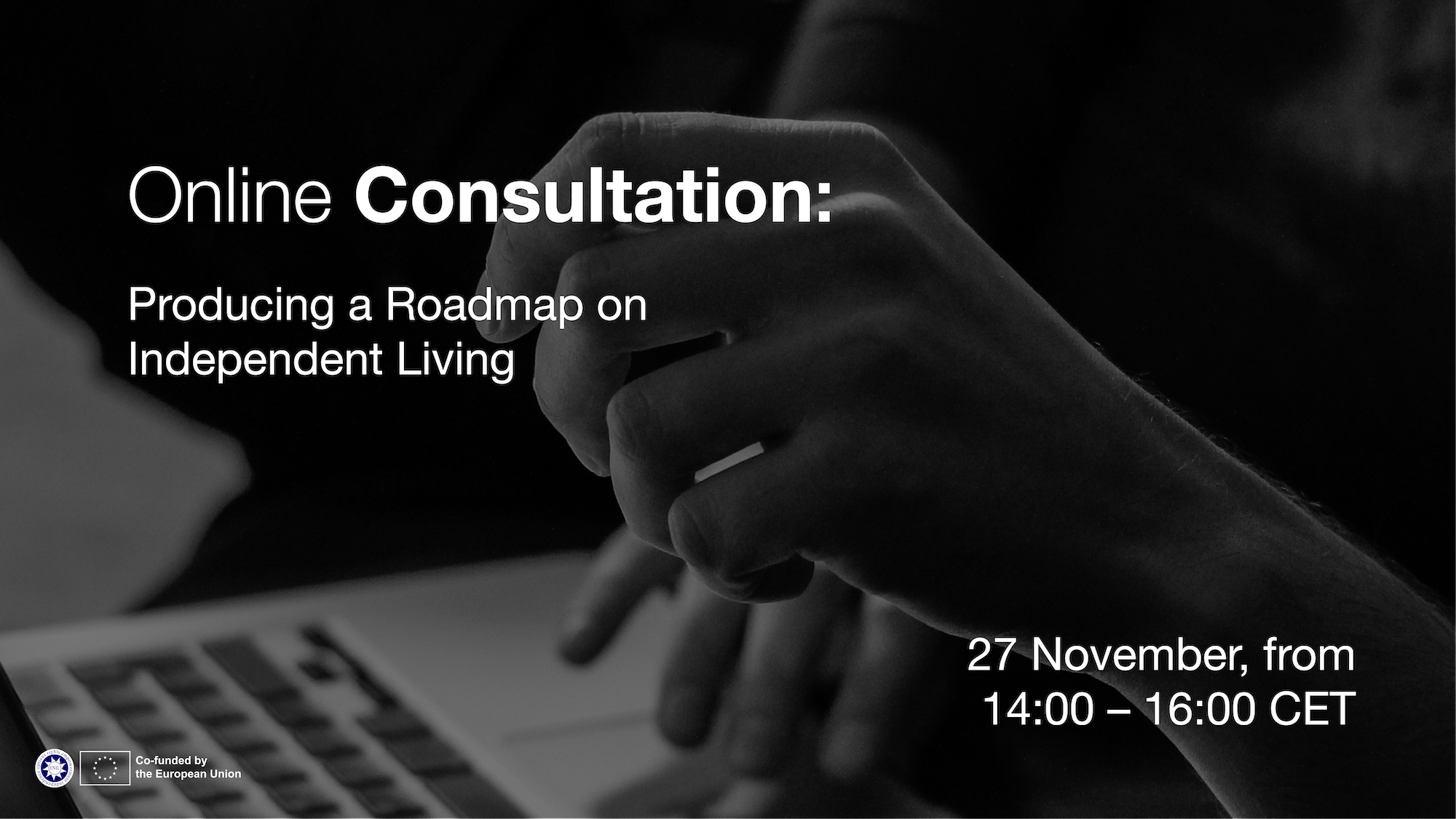By Lora-Elly Vannieuwenhuysen
I’m going to the library today.
If I don’t go, my books will be overdue, and I’ll have to pay a fine. Stupid ADHD… I’ve set several reminders in my diary to return them on time and still forgot. Oh well. Too late to worry about it now.
I check the bus schedule online—no buses, they’re striking again. Fair enough, labour rights and all that. But that leaves me without transport.
My pain and fatigue levels are fairly manageable today, so I decide to go by bike. I’ve ridden this route so many times that I don’t get lost anymore, or so I think with a bit of pride until I turn and see a sign ahead. The street is under construction, and I need to take a detour.
I park my tricycle and check my GPS. My sense of direction is practically non-existent due to my dyspraxia. I know where places are, but not how to get there. Every street, shop, and house feel like a separate area, detached from its environment like a video game with loading screens between maps.
My commute to the library now takes twice as long. Because of the extra biking time, my kneecap slips out of place while I’m pedaling. So much for my low pain day… When I pop it back in, I notice a stranger cringing at the crackling sound. Sorry pal. I can’t help it. At least it didn’t fully dislocate this time.
As I park my tricycle at the library’s bike stands, I get dirty looks. How dare I take up more space than a “normal” bike? Don’t I know there’s already too little parking space for bikes here? I do, but I’m dyspraxic and really need my third wheel. With my tricycle, at least I don’t fall over and injure myself like I do with bicycles. Most of the time, anyway.
Once my trike is parked, I sit on my saddle for a bit and stare at my smartwatch. Come on, heart rate. Lower already. My blood pressure’s all over the place because of the cycling, and I don’t want to fall over once I get off. I realise someone’s looking at me while I wait—another cyclist just pulled up and seems to think I’m about to leave because I’m still on my bike. I try to apologise and explain the situation, but she doesn’t understand due to my speech impediment. She gives me another dirty look and leaves, probably to find another parking spot further down the street.
My heart rate finally stabilises. I grab my bag from the basket between my two rear wheels and reach for my water bottle filled with an electrolyte drink—a must for anyone with POTS. As a take a sip, I try to remember everything I need to do today. I have a list on my phone somewhere—I have lists for everything, or else I forget. But I want to challenge myself and see if I can remember anyway.
I lock up my bike and take a picture of where I’ve parked it so I can still find it later, once I’ve forgotten. Then I take my patella braces from my bag. They support my wandering kneecaps, but I can’t ride my bike with braces on. I swap my earplugs, which I wear to avoid distractions and sensory overload on the road, for my noise-cancelling headphones and put on some music. I’m the type of autistic person with such sensitive hearing that I can even hear those whistles only dogs are supposed to be able to hear. If I don’t block out the excess noise around me, I’ll either get a splitting headache or have a meltdown from sensory overload. I’ve had plenty of both in the past, and I still can’t decide which is worse.
I enter the library and press the elevator button. More dirty looks. After some initial confusion, I realise why—I usually wear large anti-hyperextension leg braces to stabilise my joints, but since I came by bike today, I had to settle for my smaller patella braces, which are hidden beneath my skirt. My disability is invisible today, so everyone assumes I’m some kind of abled asshole using resources that aren’t meant for me. Never mind that this public elevator transports as many baby prams and shopping trolleys as it does wheelchairs and crutches.
I wait in line to return my books, painfully shuffling from foot to foot. Maybe I should’ve just brought my crutches today. The person in front of me is wearing a very strong cologne—it overwhelms me, flooding my senses like a perfumed tidal wave. Then my headphones’ battery dies, and suddenly all kinds of sounds bombard my ears. Tapping on keyboards, mumbling voices, the flush of a toilet, a sneeze… I thought libraries were supposed to be quiet. I cringe at the noise and, remembering the man who’d done the same at the sound of my kneecap earlier, feel like a hypocrite.
After returning my books, I shuffle to the art section, readjusting my slipping braces and cursing myself for still not having mended the worn-out Velcro that keeps them together. I’ve been meaning to for weeks, but executive dysfunction is a bitch. I look around the shelves and think about how many artists have once belonged to our community. Beethoven lost his hearing in the midst of his career. ToulouseLautrec broke both legs early in life. I don’t quite know what Van Gogh’s deal was, but the bits I’ve read about him felt uncomfortably relatable. I think back to the Osamu Tezuka autobiography I read a while ago (I’m a bit of a comic book geek) and can’t help but wonder if he would’ve shared my autism diagnosis if he had lived today. None of his work has ever struck me as inherently neurotypical.
Finally, I find the book I’ve been looking for (clutter blindness is also a bitch). I pick a book on Aubrey Beardsley from the shelf, a wonderfully controversial Victorian artist who even today is difficult to categorise. Not quite considered disabled by most, despite dying young of chronic tuberculosis. He hung around in queer circles, yet none of his biographers can decide if he was straight or gay—a feeling I know well as a bisexual who navigates both worlds. The man infamously described himself as grotesque, which I can relate to when I think about how doctors react when they see the uncanny way my hypermobile joints move beneath my skin. And yet, it took me over 10 years to get a correct diagnosis: my condition is rare, and the medical world prefers horses over zebras, even when the stripes are hiding in plain sight.
I flip through the pages until I find one of my favourite Beardsley works: an illustration of a woman with a feather in her hair, reading a book while sitting in a sofa. It seems innocent at first, but the longer you look, the more apparent the phallic shape of the woman’s head becomes, along with the suggestive scene formed by the large white plume that flows from her hair into the sensual curves of the sofa. Invisible, yet obscene.
Like Beardsley, I often feel like I don’t quite fit into any category. Yet, everyone tries to neatly box me into one based on their perceptions of me. I’m either an attention seeker draining public resources or a poor disabled soul deserving of help. Either rude or autistic. Lazy or ADHD. Straight or gay. Always one or the other, depending on how visible these aspects of my being are. I’m not allowed any space in between. Once people find out about my connective tissue disorder, I’m no longer a person but a thing of pity. My autism changes me from a capable adult into being perceived as a little child. Employers want me to be a supercrip; the government wants me to be the opposite, or else I don’t qualify for the benefits I need to survive.
I’m forced to disclose these intimate parts of myself in order to access the things I need to live my life. To be put in spotlights I don’t want to be in. To be judged based on what strangers think these categories mean, rather than what they truly mean. Again, and again.
I feel invisible, yet obscene.



